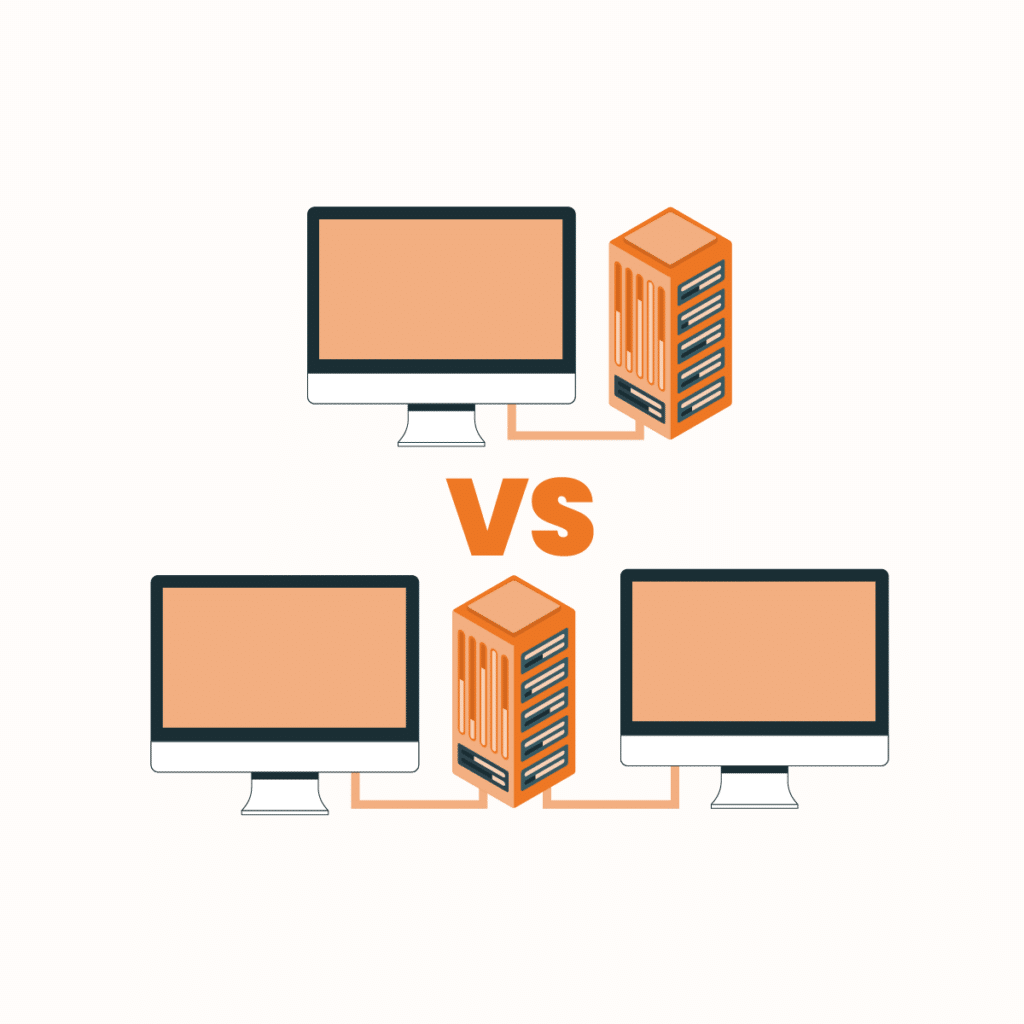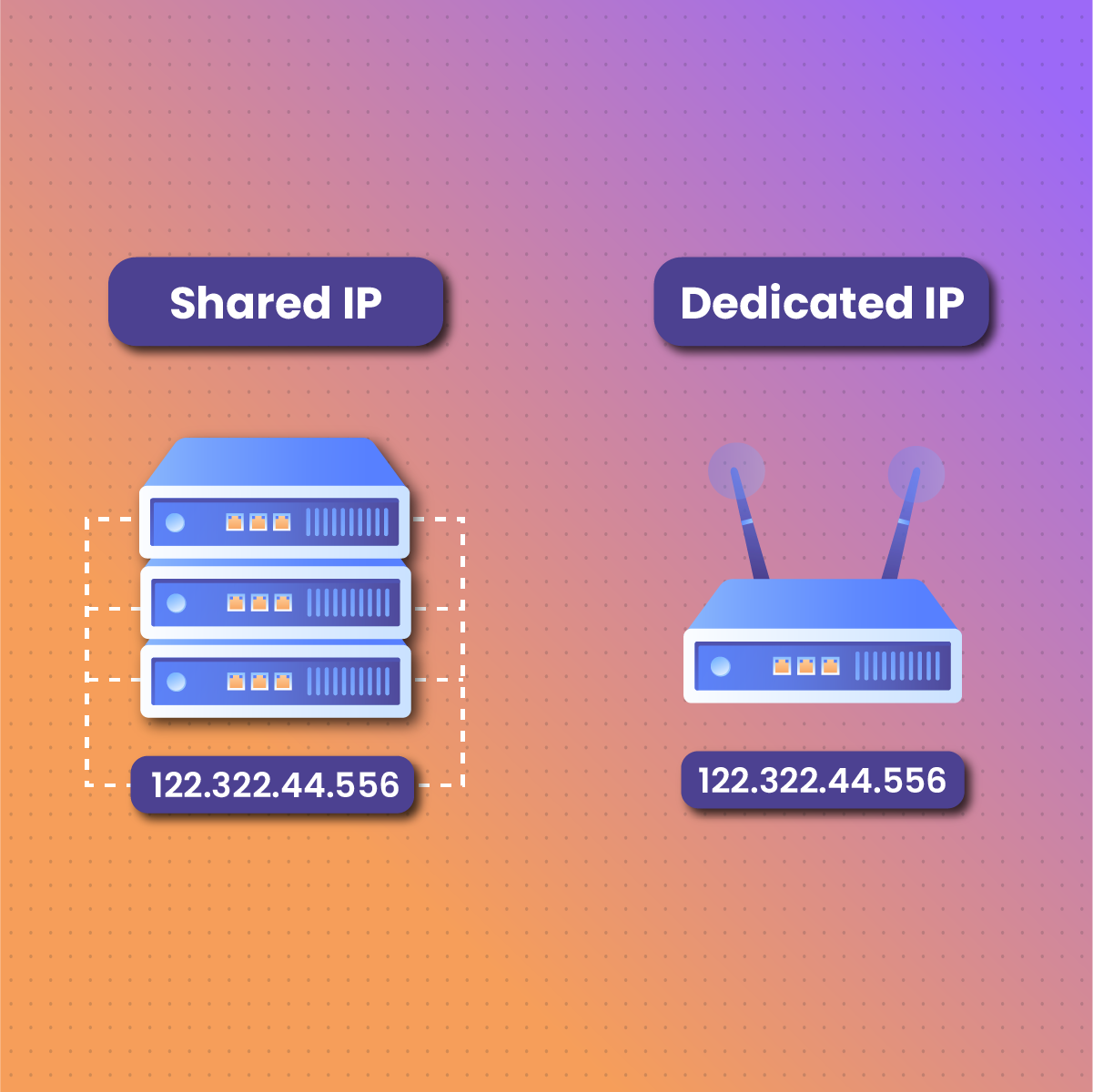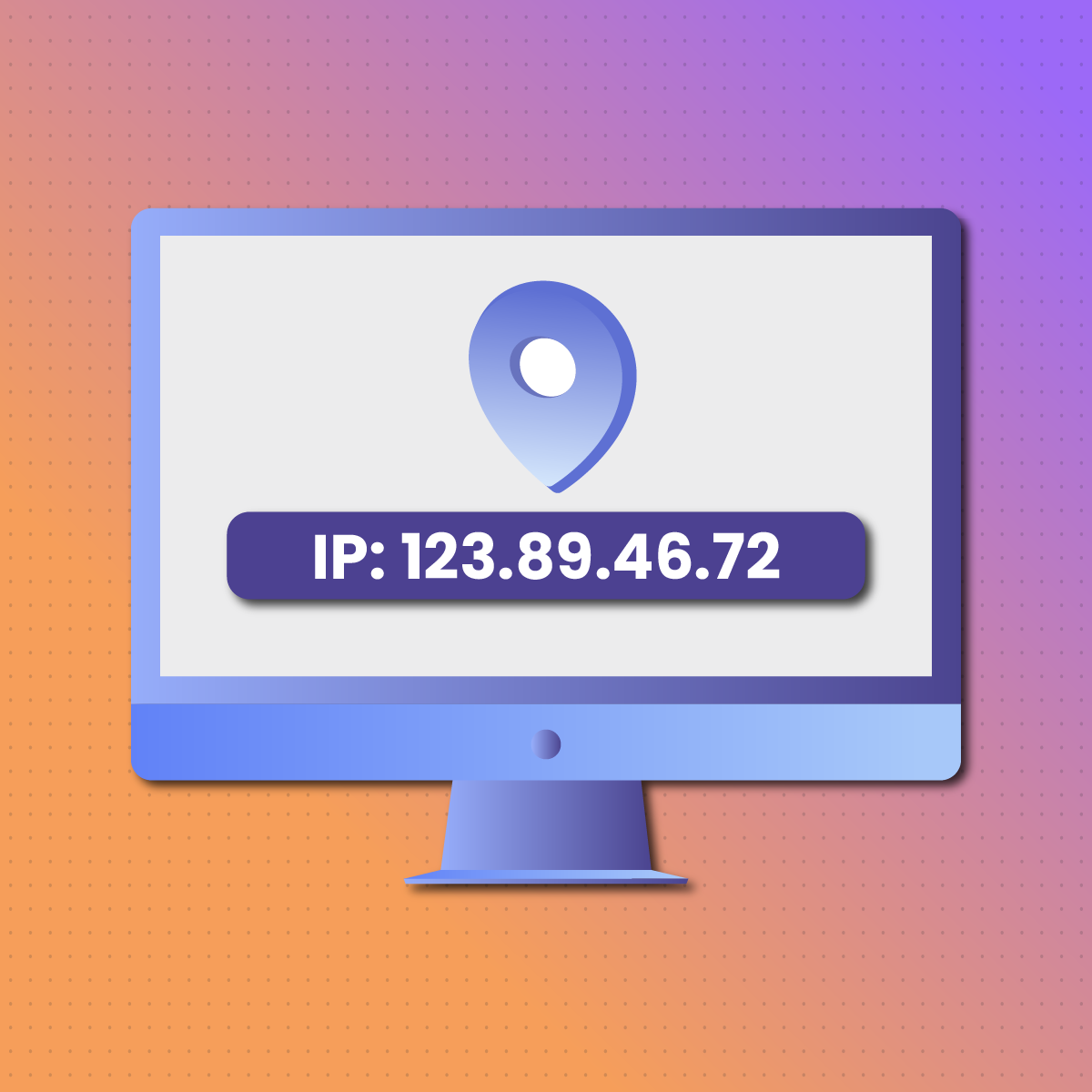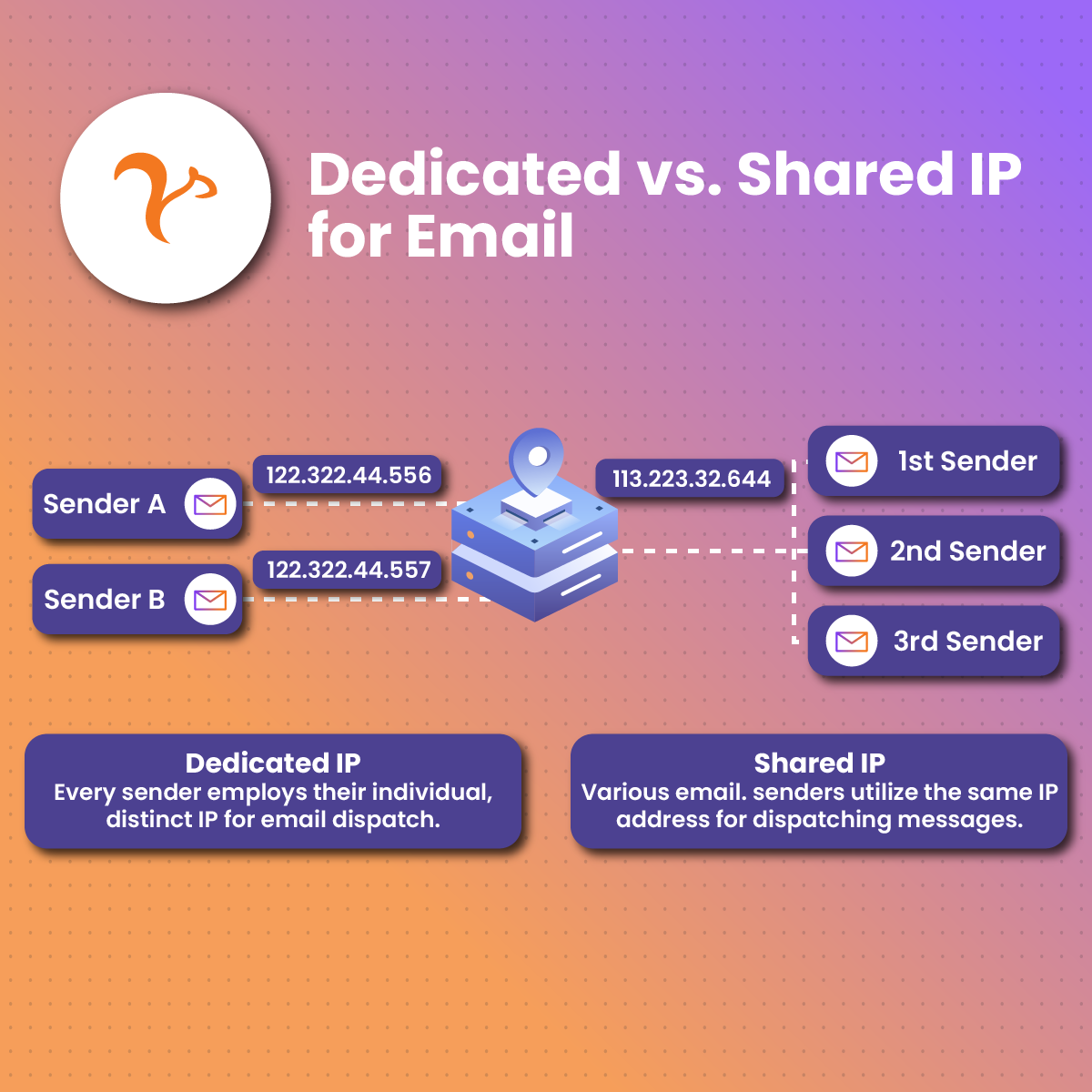Dedicated vs Shared IP Addresses: Understanding the Major Differences 
In data sharing and transfer, the internet distinguishes between numerous computer systems, devices, routers, as well as online sites through IP addresses. These IP addresses enable users to send data to and from it via domain names and they constitute a significant part of the internet.
The main question however usually is – which type of IP address is best suited for a particular system? Simply, when is a dedicated IP most suitable?, or when is it okay to use a shared IP address? To correctly answer this question, it is necessary to note that both IP addresses – dedicated and shared – have an equal share of advantages and disadvantages. A good choice of IP address for you is highly dependent on your required needs at the time.
In this article, we will carefully explain what an IP address is, the major types of IP addresses, their advantages, and the key differences between both. Also, we will further analyze which of them is more suitable for you, the common elements and pitfalls of both IP variants, and if you can modify your IP address.
What is an IP Address?
An Internet Protocol otherwise known as an IP address refers to a distinctive address allotted as an identifier to a device on the web or a computer network. It stands as a label that represents each device that is connected to the web. IP addresses are often displayed in numerical formats connected by decimal points. While they may seem like random numerical picks, it is worth noting that they are mathematically developed and assigned by the Internet Assigned Numbers Authority (IANA).
An IP address is equipped to play two major roles which are; identifying a host’s network connection and tracking the current location of the host through the connection. While an IP address cannot give exact details on where a person is, it can provide a precise geographical location to help narrow your search.
Types of IP Address
Fundamentally, there exist different categories of IP addresses, however, in this article, we will mostly consider the categories of website-allocated IP addresses. These types of IP addresses are very crucial if you run an online site that depends on internet hosting plans rather than hosting a personal server, the two categories of IP addresses suitable for your site are the dedicated IP address and the shared IP address. Let’s get right into the details in full.
What are Shared IP Addresses?
Shared IP addresses simply refer to a string of internal IP addresses allocated to multiple online sites. Online sites that depend on a shared hosting package from internet hosting sources are common examples of users of shared IPs. Many such online websites include small and medium-scale e-commerce sites as well as individual sites.
The shared IP address operates similarly to other IP addresses by collectively using a single network to connect to the internet. The internet service provider (ISP) assigns this IP address to all the sites connected to this network. The only major difference is that the IP address is collectively used by different anonymous users, and as such there is no dedication of resources to anyone in particular. Regardless of the disadvantage of sharing the same IP address with strangers, it might interest you to know that the shared IP address still has unique benefits that are worth considering. A couple of them are.
Advantages of Shared IPs
Some interesting advantages of using a shared IP address are as follows:
- Cost-effective. The shared IP variant is more economical to use when compared to the dedicated IP variant. Especially if you are new to email marketing and similar activities. Utilizing the shared IP variant when transmitting large volumes of data like emails is more economical and rational.
- Ease of maintenance. Having multiple users on an IP address can assist in maintaining the IP’s performance. Although it may seem tough to monitor the IP to ensure that its reputation is maintained, the upside is that multiple users are focused on keeping the IP’s health in good condition.
- Access to shared resources. If you are just starting to send emails, and you require a significant number of emails. Then, using a shared IP address with people who prioritize their IP’s reputation can be of major benefit to you providing you with the access they have developed over time.
What is a Dedicated IP address?
Some internet hosting packages may present the alternative of buying a dedicated IP address. This is to facilitate getting a secure socket layer (SSL) certificate enabling you to operate your file transfer protocol (FTP) server. This IP variant allows you to effortlessly send and receive files from different people whilst maintaining an anonymous FTP transmission pattern.
A dedicated IP permits you to access your online site by solely utilizing the IP address. In this case, when a person inputs your assigned IP address into the search section of their web browser, your online site will pop up.
Advantages Attached to Dedicated IPs
A major advantage to this variant of IP address is that you are the sole user, thereby giving you absolute control over it. Other advantages may include:
- Complete user control. Dedicated IP addresses provide you with full and absolute control over your IP’s reputation. Ensuring no anonymous user can infiltrate the space and connect to your IP address. It also erases the need to worry about spam transmission and negative impacts on your IP reputation or delisting. This makes them suitable for business purposes such as price monitoring and SEO.
- Quick problem resolution. Using a dedicated IP address makes it easy to quickly detect and rectify hitches or any related problems. This is because, when connected to a shared IP, it can be more difficult to detect the source of certain hitches and how to go about getting it fixed, but with a dedicated IP, the option of an added value that not only protects your IP but also keeps it at peak performance is there.
Dedicated IP vs Shared IP: Key Differences
To thoroughly distinguish the key differences between a dedicated IP and a shared IP, we have to compare them according to features that many site owners prioritize.
Because the distinguishing factor between these two variants of online sites’ IP addresses narrows down to their exclusive nature. Shared IPS appears to be more available to random individuals or firms who have rights of ownership at different times. On the other hand, dedicated IPs are exclusively set aside for an entity.
While the shared IP is more economical as it requires next to no expenditure on maintenance, the dedicated
IP address fits better in a business setting. Let us give a better highlight.
- Business enterprises will often opt for a dedicated IP option that can help transmit a significant amount of emails to clients. This option gives a better chance of control over email transmission because it is usually more difficult to exercise control when utilizing IP addresses that are also being utilized by other individuals or firms.
- The dedicated IP address option is also a better bet for business organizations that aim to achieve a heightened level of security or operate in compliance with certain adherence policies. The dedicated IP address will see to it that the online site is restricted from other existing websites on the server, thereby minimizing the possibility of multisite pollution.
- Firms that need remote entry into their network, like contract or remote staff, explore the dedicated IP address option. This is because it is the only way to guarantee that a remote staff remains linked to an exact IP, ensuring better security and supervision.
In summary, shared IP is cost-effective and simple to maintain, but is prone to certain internet risks. Dedicated IP addresses, on the other hand, offer more quality in terms of privacy, and supervision alongside security which is not exactly cheap. The question now is, what kind of IP is the most suitable for your website? Let us find out.
Not! While there are pitfalls to sharing IPs with other users, it is not exactly tagged as a dangerous action. Nonetheless, to push for better security and privacy protection, you may want to implement certain guidelines that will ensure that your resources are kept safe from others without and out of your network. Also, endeavor to set up appropriate measures for those who try to gain entry into certain parts of your network. A dedicated IP may appear to be the major solution to all of the hassle.
Is it possible to purchase a static IP?
Of course, it is possible to purchase a static IP address directly from your internet service providers or even your hosting source. When you complete the purchase process, you will get a static IP address that will stay the same whenever you disconnect and reconnect to the web, contrary to dynamic addresses that are bound to change once you reconnect to the web.
Not all internet service providers readily provide static IP addresses and the ones that offer such service are likely to request a service charge, hence, you may need to find out about their cost and availability directly.
Does operating a static IP address enhance performance?
There is a significant difference when you work with a dedicated static IP address. This is so because your server is only burdened with all of the traffic that you create, possibly with your firm, in the case of a business setting. The speed is enhanced unlike in that of the shared IP address where the server is being shared with anonymous partners.
How does my IP address change according to my location?
In an instance where you decide to travel out of your current location, the IP address assigned to you in your home location does not travel with you even though your device is with you. So, how does it work? You are most likely to get connected to another network, that is, WiFi in the area where you will temporarily be, whether a hotel or even the airport. To get through to the online space, you will be allotted a temporary IP by the internet service provider of that hotel airport.







